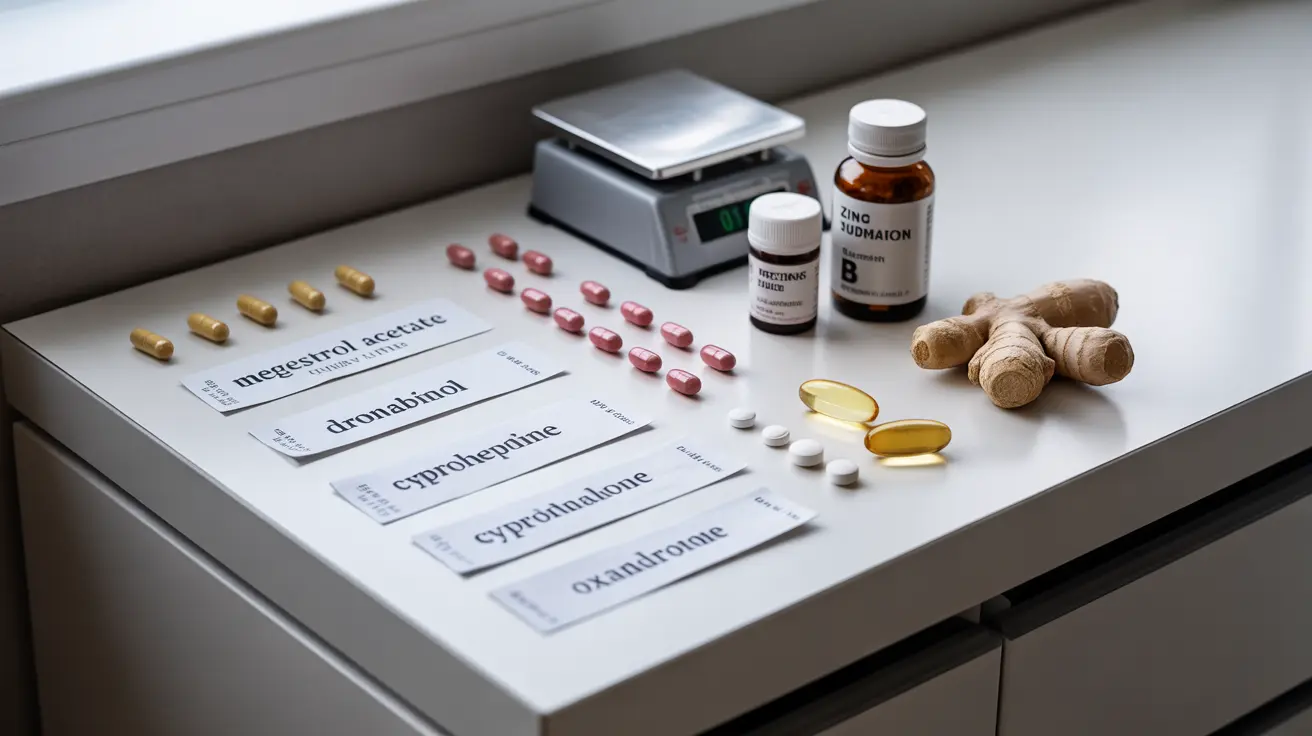When appetite loss becomes a significant health concern, understanding the role of appetite stimulants can be crucial for maintaining proper nutrition and overall well-being. These medications and supplements are designed to increase hunger and food intake in individuals experiencing reduced appetite due to medical conditions, treatments, or other health-related factors.
Whether prescribed by healthcare providers or available as natural alternatives, appetite stimulants serve an important purpose in medical care. This comprehensive guide explores both medical and natural options, their effectiveness, and important safety considerations.
Medical Appetite Stimulants: Types and Mechanisms
Healthcare providers may prescribe several types of appetite stimulants depending on a patient's specific needs and medical condition. Common prescription medications include:
- Megestrol acetate (Megace)
- Dronabinol (Marinol)
- Cyproheptadine
- Oxandrolone
These medications work through different mechanisms, such as affecting hormone levels, mimicking natural appetite signals, or influencing the brain's hunger centers. Understanding how each medication functions helps healthcare providers make informed prescribing decisions.
Safety Considerations and Side Effects
Like all medications, prescription appetite stimulants can cause various side effects that patients should be aware of:
- Fluid retention
- Changes in blood sugar levels
- Mood alterations
- Potential hormone imbalances
- Sleep pattern changes
Regular monitoring by healthcare providers is essential to ensure safe and effective use of these medications. Patients should report any unusual symptoms promptly.
Natural Alternatives for Appetite Enhancement
For those seeking non-pharmaceutical options, several natural alternatives may help stimulate appetite:
- Zinc supplements
- Vitamin B complex
- Herbal remedies like ginger and bitter herbs
- Omega-3 fatty acids
While natural options may be gentler, their effectiveness can vary among individuals. It's important to consult healthcare providers before starting any supplement regimen.
Lifestyle Modifications to Improve Appetite
Several lifestyle changes can naturally enhance appetite without medication:
- Regular physical activity
- Consistent meal scheduling
- Creating a pleasant eating environment
- Smaller, more frequent meals
- Proper hydration between meals
These modifications often work best when implemented consistently and in combination with other appropriate treatments.
Medical Conditions Requiring Appetite Stimulation
Healthcare providers typically consider appetite stimulants for patients with:
- Cancer-related appetite loss
- HIV/AIDS-associated wasting
- Chronic inflammatory conditions
- Eating disorders
- Depression-related appetite changes
The decision to prescribe appetite stimulants involves careful evaluation of the underlying cause and potential benefits versus risks.
Frequently Asked Questions
What are the most commonly prescribed appetite stimulant medications and how do they work?
The most commonly prescribed appetite stimulants include megestrol acetate, dronabinol, and cyproheptadine. These medications work by either affecting hormone levels that control hunger, mimicking natural appetite-stimulating compounds, or influencing brain chemistry related to appetite regulation.
What are the potential side effects and safety concerns of using appetite stimulants like megestrol acetate and cyproheptadine?
Common side effects include fluid retention, changes in blood sugar levels, mood changes, and hormonal effects. Safety concerns include potential interactions with other medications and the need for regular monitoring. Some patients may experience drowsiness, particularly with cyproheptadine.
Can natural supplements like zinc or herbal remedies effectively increase appetite?
Natural supplements can help stimulate appetite in some individuals. Zinc deficiency can cause appetite loss, so supplementation may help when levels are low. Herbal remedies like ginger and bitter herbs may stimulate digestive processes and increase appetite, though scientific evidence varies.
How do doctors decide when to prescribe appetite stimulants for conditions causing significant weight loss?
Doctors evaluate several factors, including the underlying cause of appetite loss, severity of weight loss, overall health status, and potential risks versus benefits. They typically prescribe appetite stimulants when weight loss becomes medically significant and other interventions have been unsuccessful.
What lifestyle changes can help improve appetite without medication?
Effective lifestyle changes include establishing regular meal times, engaging in physical activity, creating a pleasant eating environment, eating smaller, more frequent meals, and staying properly hydrated. Social eating and food preparation involvement can also help stimulate natural appetite.




